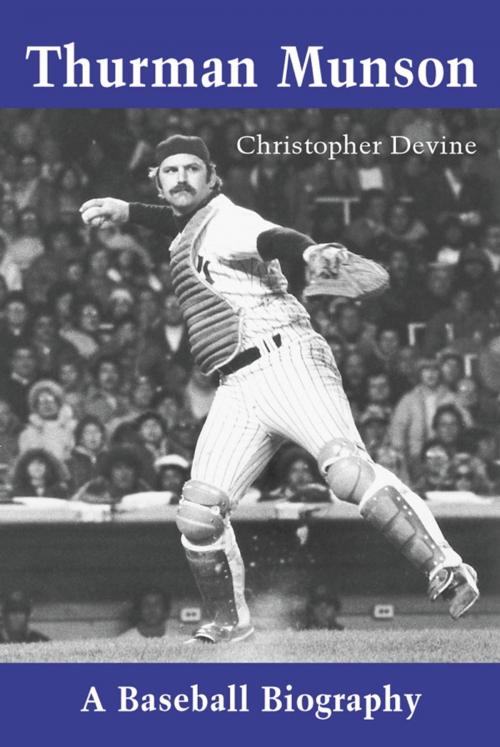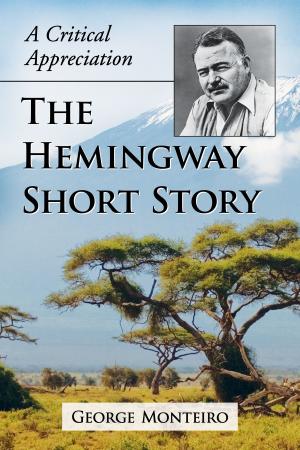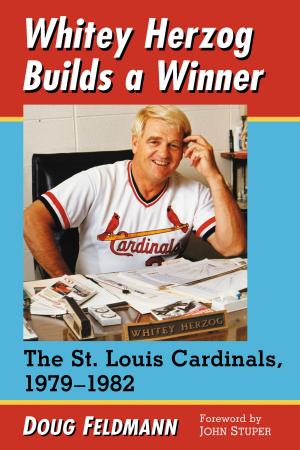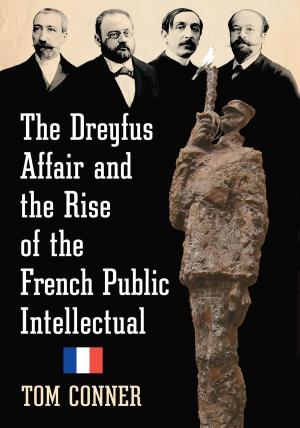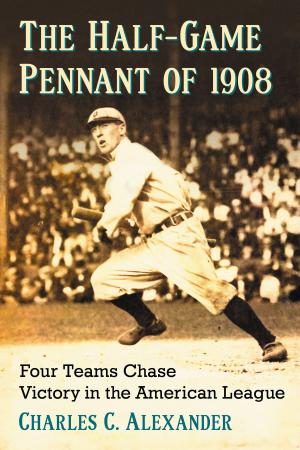| Author: | Christopher Devine | ISBN: | 9780786483341 |
| Publisher: | McFarland & Company, Inc., Publishers | Publication: | September 11, 2015 |
| Imprint: | Language: | English |
| Author: | Christopher Devine |
| ISBN: | 9780786483341 |
| Publisher: | McFarland & Company, Inc., Publishers |
| Publication: | September 11, 2015 |
| Imprint: | |
| Language: | English |
When in 2000 the Baseball Writers Association of America elected the ever-durable Carlton Fisk to the National Baseball Hall of Fame, many fans quietly pointed to the Hall’s omission of Fisk’ greatest American League contemporary, Thurman Munson. And when in 2001 the writers honored Kirby Puckett, the Twins star forced to retire with glaucoma after a brilliant but brief 12-year career, the same fans began to raise their voices in support of Munson, another short-timer who was once the toast of his team's hometown. In a position that requires the strapping on of hot, awkward equipment and the torturous alternation of standing and squatting, most catchers struggle to maintain electrolytes, let alone a respectable batting average. It is, in fact, a position so demanding, that men deemed good ball-handlers or pitcher confidants might hang on in the big leagues for years despite their drag on a team’s offensive production. Munson, like Fisk and National Leaguer Johnny Bench, was a tough-as-nails backstop, a Gold Glove winner, and the unquestioned leader of his team. Like Bench and Fisk, too, though to a lesser degree, Munson had home run power. But the Yankee captain was in, at least one respect, an even rarer breed of catcher—one who manages despite the physical and mental demands of his position to finish each year somewhere near the .300 mark. Munson, who ranked in the top 10 among A.L. hitters five of the nine full seasons he played, was widely considered one of his generation’s great clutch hitters. When the star catcher died at age 32, he was still in his prime, and it seems clear to many that on August 2, 1979, misfortune denied Munson his place in Cooperstown. Outlived by his contemporaries, who went on to post more impressive career numbers, and now overshadowed by the accomplishments of catchers from the current batter-biased era, Munson’s chances for recognition grow increasingly faint. But for all the praiseworthy things he did on the field in his short career, Thurman Munson accomplished as much in between the innings and games he labored through. And it might be his influence for which he’s ultimately remembered. In this work, author Chris Devine pays special attention to Munson as teammate, friend, husband, and father.
When in 2000 the Baseball Writers Association of America elected the ever-durable Carlton Fisk to the National Baseball Hall of Fame, many fans quietly pointed to the Hall’s omission of Fisk’ greatest American League contemporary, Thurman Munson. And when in 2001 the writers honored Kirby Puckett, the Twins star forced to retire with glaucoma after a brilliant but brief 12-year career, the same fans began to raise their voices in support of Munson, another short-timer who was once the toast of his team's hometown. In a position that requires the strapping on of hot, awkward equipment and the torturous alternation of standing and squatting, most catchers struggle to maintain electrolytes, let alone a respectable batting average. It is, in fact, a position so demanding, that men deemed good ball-handlers or pitcher confidants might hang on in the big leagues for years despite their drag on a team’s offensive production. Munson, like Fisk and National Leaguer Johnny Bench, was a tough-as-nails backstop, a Gold Glove winner, and the unquestioned leader of his team. Like Bench and Fisk, too, though to a lesser degree, Munson had home run power. But the Yankee captain was in, at least one respect, an even rarer breed of catcher—one who manages despite the physical and mental demands of his position to finish each year somewhere near the .300 mark. Munson, who ranked in the top 10 among A.L. hitters five of the nine full seasons he played, was widely considered one of his generation’s great clutch hitters. When the star catcher died at age 32, he was still in his prime, and it seems clear to many that on August 2, 1979, misfortune denied Munson his place in Cooperstown. Outlived by his contemporaries, who went on to post more impressive career numbers, and now overshadowed by the accomplishments of catchers from the current batter-biased era, Munson’s chances for recognition grow increasingly faint. But for all the praiseworthy things he did on the field in his short career, Thurman Munson accomplished as much in between the innings and games he labored through. And it might be his influence for which he’s ultimately remembered. In this work, author Chris Devine pays special attention to Munson as teammate, friend, husband, and father.
